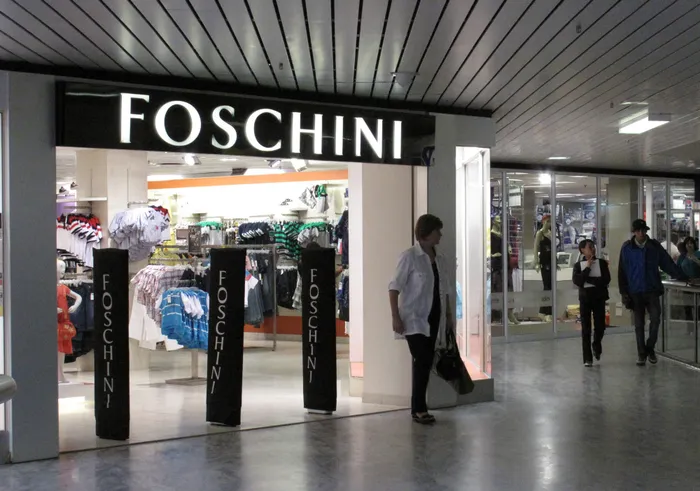
The Foschini Group said the South Africa economy performed worse than expected and growth had softened towards the end of its interim period to September 31, 2025.
Image: Sam Clark
The Foschini Group (TFG) shares plunged over 19% on the JSE Tuesday afternoon after it reported that headline earnings per share for the six months to September 30 are expected to be 20% to 25% lower than the same period last year.
The group directors said the SA economy had softened “significantly” towards the end of its interim period.
Consumer sentiment and discretionary spend in South Africa had remained subdued for longer than expected, despite moderating inflation and recent interest rate cuts, the South Africa, UK and Australia clothing and homeware retail group said in a trading statement.
The share price traded at R97.25 on Tuesday afternoon, a price that was also well down on R145.05 a year earlier.
Negative operating leverage arose in the group from subdued sales growth and gross margin contraction, despite tight cost control; and also due to a 14.5% increase in finance costs from financing the White Stuff acquisition in October 2024, and from an accounting leases charge related to new stores and lease renewals, the group's directors reported.
Group sales grew by 12.7% for the first half to R29.2 billion (3.5% excluding White Stuff). Group online sales grew by 55.3% and contributed 14.7% to total retail sales. TFG Africa online sales grew by 40.2% driven by the Bash platform.
In South Africa, market share was maintained in Apparel, and in Homeware, it grew by 20 basis points, according to the Retail Liaison Committee.
TFG Africa’s sales grew 5.3%. First quarter retail sales grew 5.2%, after a strong start to the year, with sales in the first eight weeks up 9.9%, benefiting from a strong start to winter trade.
After a difficult June, trade recovered in July through to early-September, before being impacted by a sharp contraction in customer activity and a change in the timing of school holidays that saw sales shift into October, they said.
Credit sales grew by 7.9%, representing 27.4% of total sales. Acceptance rates for new accounts declined marginally, to 19.6%. The quality of the book was in line with the prior period with an increase in provisioning since year end reflective of book growth.
Markdown from winter clearance activity impacted gross margins by 100 basis points before recovering to a net 90 basis point margin contraction by the end of the period.
“Despite good operational cost control, negative operating leverage from the subdued trading environment resulted in a decline in segmental earnings before interest and tax (EBIT) of 9.7%."
At TFG London, with the addition of White Stuff, total sales increased by 69% in UK pounds. Excluding White Stuff, sales grew by 0.7% as trade continued to be impacted by a weak UK economy.
White Stuff continued to deliver market-leading performance, with sales growing 12.5% and with the inclusion of White Stuff, TFG London EBIT grew 9.1%.
At TFG Australia, discretionary spend remains subdued but sales trended consistently better throughout the period with second quarter growth of 1.6% in Australia dollars offsetting the 2.8% contraction in the first quarter. Sales for the period contracted by 0.5%.
As a result of expenses growing ahead of sales, driven by costs from new stores and continued inflationary pressure on expenses, segmental EBIT declined by 18.4%.
BUSINESS REPORT